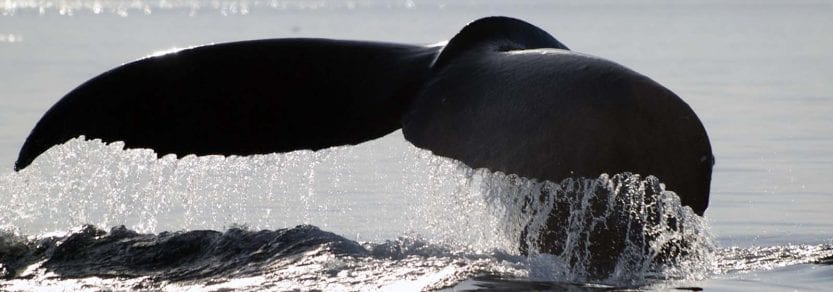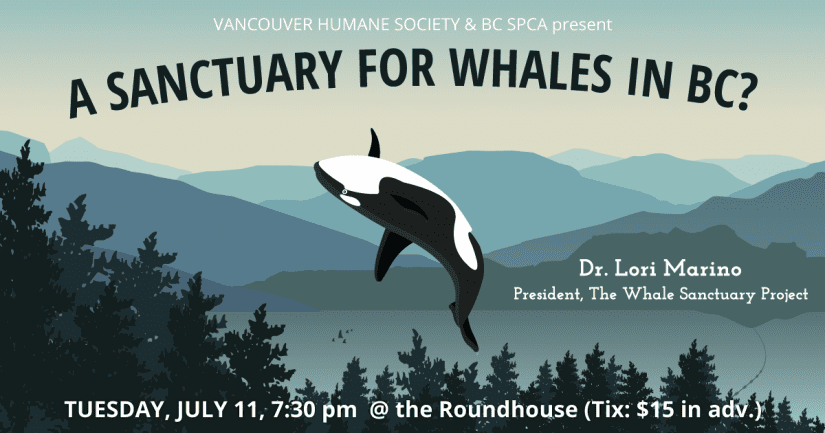The public is warmly invited to join internationally known neuroscientist and researcher Dr. Lori Marino to learn more about a ground-breaking effort to create a new ocean sanctuary for former captive whales and for the rehabilitation of wild cetaceans in need.
She will speak on the Whale Sanctuary Project on Tuesday, July 11 at 7 p.m. at the Roundhouse Community Centre, 181 Roundhouse Mews in Vancouver. Tickets are available for $15. The event is co-presented by the BC SPCA and the Vancouver Humane Society.
As president of the Whale Sanctuary Project, Dr. Marino leads a team of internationally renowned marine biologists, wildlife veterinarians, zoologists, university researchers as well as engineers and business experts dedicated to establishing a new, more humane model for the long-term care of cetaceans. The initiative was launched in 2016 with the goal of creating seaside sanctuaries in North America where whales, dolphins and porpoises who are being retired from entertainment facilities or who have been rescued from the ocean can live in an environment as close to their natural habitat as possible and with full support for their well-being.

“Whales and dolphins are highly intelligent animals who have complex social needs, and public opinion is increasingly opposed to keeping them captive in concrete tanks,” says Dr. Marino. “There are sanctuaries for other large, highly social wild animals such an elephants, big cats and primates – a sanctuary for cetaceans is long overdue.”
Dr. Sara Dubois, chief scientific officer for the BC SPCA and an advisor to the Whale Sanctuary Project, says that while most members of the public no longer support keeping these highly intelligent animals in captivity for entertainment purposes, there is currently nowhere for them to go. “This initiative is so exciting because it creates the opportunity for injured and stranded cetaceans to be rehabilitated in a natural setting and released back to the wild, and for whales born in captivity who cannot be returned safely to the wild to live out their lives in a natural setting that is as close as possible to what they would experience in the wild.” She notes that the seaside sanctuary model being proposed is very different from a sea pen captive facility.
Dr. Dubois said the group is looking at possible sanctuary sites along the coast of Washington State and British Columbia as well as in Nova Scotia along the East Coast. The sanctuaries will allow public access to the animals in the natural setting but will focus on education and conservation, not entertainment.

